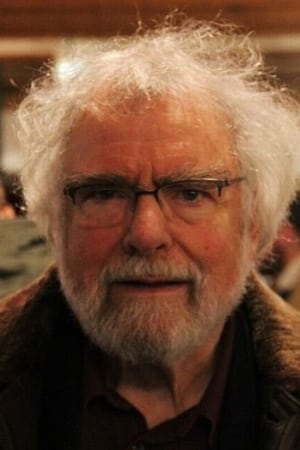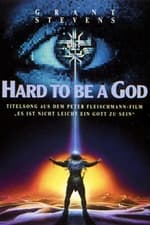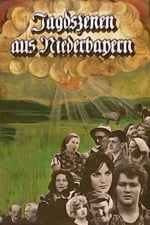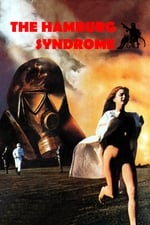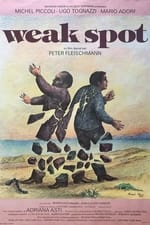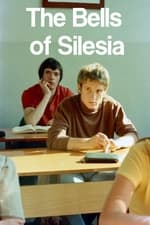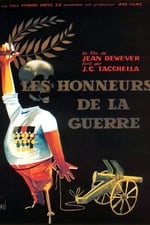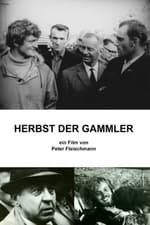Personal Info
Known For Directing
Known Credits 25
Gender Male
Birthday July 26, 1937
Day of Death August 11, 2021 (84 years old)
Place of Birth Zweibrücken, Germany
Also Known As
- -
Content Score
100
Yes! Looking good!
Login to report an issue
Biography
Peter Fleischmann (26 July 1937 – 11 August 2021) was a German film director, screenwriter and producer. He worked also as an actor, cutter, sound engineer, interviewer and speaker. Fleischmann belonged to the New German Cinema of the 1960s and 1970s. He is known for directing the 1969 Jagdszenen aus Niederbayern (Hunting Scenes from Bavaria), but he produced films of many genres.
Peter Fleischmann was born in Zweibrücken. He studied at the Deutsches Institut für Film und Fernsehen (German Institute of Film and Television, DIFF) in Munich and Institut des hautes études cinématographiques (IDHEC) in Paris. He had contact with representatives of the French Nouvelle Vague movement, and became a friend of Jean-Claude Carrière, with whom he later wrote screenplays. After years as an assistant director, he became a director in 1963 in short films and children's films. In 1967, he directed a documentary, Herbst der Gammler, about the Gammler subculture, which anticipated the gereration conflicts of the 1968 student movement.
His first full-length film was released in 1969, Jagdszenen aus Niederbayern, based on the play of the same name by Martin Sperr, who also played the leading role. The film reflects critically how a Bavarian village deals with outsiders, especially the homosexual character played by Sperr. The film was awarded prizes, including the Filmband in Silber of Deutscher Filmpreis. It was suggested for a nomination as the Oscars' best foreign film but was not nominated. The film made Fleischmann a representative of the New German Cinema of the 1960s and 1970s. The same year, Fleischmann and Volker Schlöndorff founded the film production company Hallelujah-Film.
In Fleischmann's later works, often the seemingly villainous character would turn out to be a good person. In Das Unheil (Havoc), with a script by Fleischmann and Martin Walser, he criticised in 1972 the provincial attitude of a Hessian small town and pollution of the environment. The film was awarded the Prix Luis Buñuel of the Cannes Festival. In Dorotheas Rache (1974), he created a provocative satire on the sexfilm wave. His 1979 film The Hamburg Syndrome (Die Hamburger Krankheit) about an unknown infectious plague in German, with actor Helmut Griem, received attention again in 2020 during the COVID-19 pandemic. ...
Source: Article "Peter Fleischmann" from Wikipedia in English, licensed under CC-BY-SA 3.0.
Peter Fleischmann (26 July 1937 – 11 August 2021) was a German film director, screenwriter and producer. He worked also as an actor, cutter, sound engineer, interviewer and speaker. Fleischmann belonged to the New German Cinema of the 1960s and 1970s. He is known for directing the 1969 Jagdszenen aus Niederbayern (Hunting Scenes from Bavaria), but he produced films of many genres.
Peter Fleischmann was born in Zweibrücken. He studied at the Deutsches Institut für Film und Fernsehen (German Institute of Film and Television, DIFF) in Munich and Institut des hautes études cinématographiques (IDHEC) in Paris. He had contact with representatives of the French Nouvelle Vague movement, and became a friend of Jean-Claude Carrière, with whom he later wrote screenplays. After years as an assistant director, he became a director in 1963 in short films and children's films. In 1967, he directed a documentary, Herbst der Gammler, about the Gammler subculture, which anticipated the gereration conflicts of the 1968 student movement.
His first full-length film was released in 1969, Jagdszenen aus Niederbayern, based on the play of the same name by Martin Sperr, who also played the leading role. The film reflects critically how a Bavarian village deals with outsiders, especially the homosexual character played by Sperr. The film was awarded prizes, including the Filmband in Silber of Deutscher Filmpreis. It was suggested for a nomination as the Oscars' best foreign film but was not nominated. The film made Fleischmann a representative of the New German Cinema of the 1960s and 1970s. The same year, Fleischmann and Volker Schlöndorff founded the film production company Hallelujah-Film.
In Fleischmann's later works, often the seemingly villainous character would turn out to be a good person. In Das Unheil (Havoc), with a script by Fleischmann and Martin Walser, he criticised in 1972 the provincial attitude of a Hessian small town and pollution of the environment. The film was awarded the Prix Luis Buñuel of the Cannes Festival. In Dorotheas Rache (1974), he created a provocative satire on the sexfilm wave. His 1979 film The Hamburg Syndrome (Die Hamburger Krankheit) about an unknown infectious plague in German, with actor Helmut Griem, received attention again in 2020 during the COVID-19 pandemic. ...
Source: Article "Peter Fleischmann" from Wikipedia in English, licensed under CC-BY-SA 3.0.
Directing
|
||||||
|
||||||
|
||||||
|
||||||
|
||||||
|
||||||
|
||||||
|
||||||
|
||||||
|
||||||
|
||||||
|
||||||
|
||||||
|
||||||
|
||||||
|
Writing
|
|||
|
|||
|
|||
|
|||
|
|||
|
|||
|
|||
|
|||
|
|||
|
|||
|
|||
|
|||
|
|||
|
|||
|
Acting
|
|||
|
|||
|
|||
|
|||
|
|||
|
|||
|
|||
|
|||
|
Production
|
|||
|
|||
|
|||
|
|||
|
|||
|
Editing
|
|||
|
|||
|
|||
|
Crew
|
